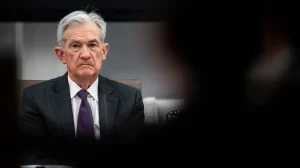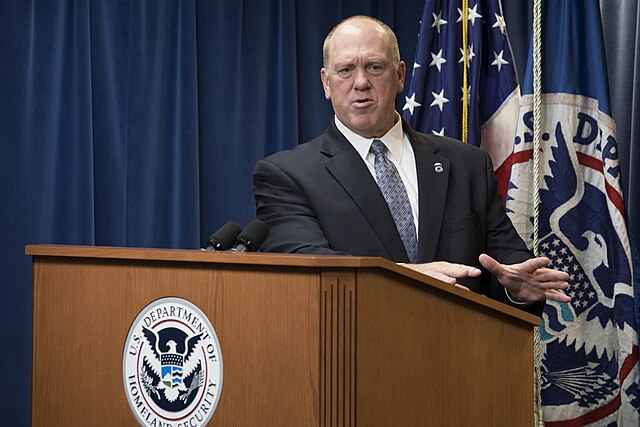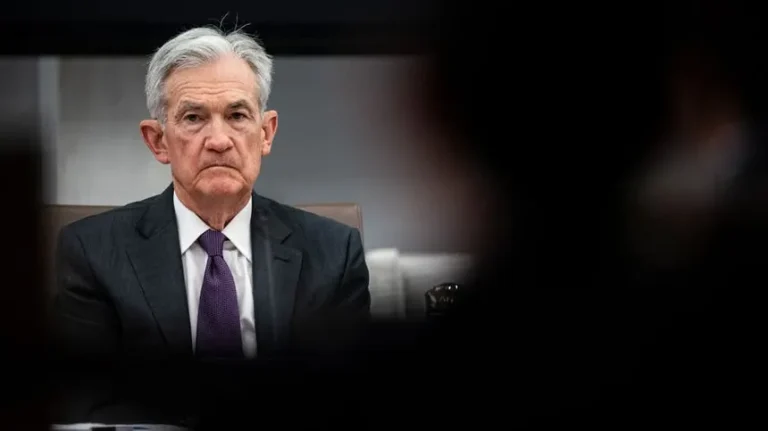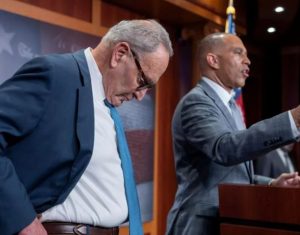WASHINGTON — Border Czar Tom Homan has opened up about the deeply personal reason that drives his decades-long fight to secure America’s southern border — a mission he says is rooted in tragedy, experience, and the belief that stronger enforcement saves lives.
In a candid interview with Breitbart Editor-in-Chief Alex Marlow, Homan spoke with rare emotion about what he has witnessed over more than 35 years in immigration enforcement. From heartbreaking encounters with migrant children to violent cartel crimes, he said those memories have defined both his personal life and his public service.
“If you wore my shoes for three and a half decades, you wouldn’t ask that question,” Homan said. “I’ve seen so much tragedy in my life — it’s who I am today.”
A Career Built on the Front Lines
Homan began his law enforcement career in 1984 with the U.S. Border Patrol, later joining Immigration and Customs Enforcement (ICE). Over the years, he rose through the ranks to become the first ICE director in history to have started as a Border Patrol agent — a career path that gave him firsthand understanding of the challenges facing federal immigration officers.
He served under six U.S. presidents, from Ronald Reagan to Donald Trump, and earned a reputation for being a dedicated and data-driven leader. For decades, Homan was seen as a nonpartisan figure — one who worked quietly under both Democratic and Republican administrations.
That changed when he accepted a senior position under President Trump, helping to shape border security and immigration policy. His reentry into government marked a turning point in his public visibility — and in the level of personal scrutiny he faced.
“It’s hard to say no to the President of the United States when he asks you to help fix something that’s costing thousands of lives,” Homan said. “So I came back. I knew the hate was coming.”
A Mission That Comes With Personal Cost
Homan said his decision to return to government service came with significant personal sacrifice. The former ICE director revealed that his family has lived apart from him for months because of security threats.
“Unfortunately, my family pays the price,” he said. “I haven’t lived with them in months because of the death threats against me. But they understand the mission. They know why it matters.”
Despite those challenges, Homan said he remains undeterred — emphasizing that his motivation stems not from politics, but from what he has seen firsthand: human suffering, violence, and the consequences of unchecked smuggling operations.
Witness to the Human Toll
During the interview, Homan grew visibly emotional when recalling scenes from the field that have stayed with him for decades. He spoke of standing beside trucks filled with migrants who had suffocated in extreme heat, of children victimized by smugglers, and of families destroyed by organized criminal networks.
“If they held the dead children I’ve held,” Homan said, “if they talked to little girls as young as nine who were raped multiple times by handlers from the cartel, if they stood on the back of a tractor-trailer where 19 people baked to death — including a five-year-old boy — they’d understand why this fight matters.”
He described one such tragedy that left an enduring mark on him: the death of 19 migrants inside a sealed trailer. Homan said that by the time agents reached the vehicle, the doors had been forced open and survivors were scrambling for air.
“When I arrived on that crime scene, several bodies had already hit the ground,” he said quietly. “When the doors opened, people rushed out to get air. The ones who didn’t make it were fighting for a small hole where the brake light used to be — trying to breathe.”
Homan said that among the victims was a five-year-old boy, found in his underwear and cradled by his father, who also died.
“Most of them were in their underwear because they were trying to get some relief from the heat inside that steel box,” he recalled. “I’ll never forget that image.”
A Personal Calling, Not a Political One
Though Homan has been one of the most vocal defenders of Trump’s border policies, he insists that his commitment is not partisan — it’s personal. He said his years in the field convinced him that stronger border enforcement prevents suffering, deters cartels, and saves lives on both sides of the border.
“This isn’t about politics,” Homan explained. “It’s about saving lives. Every day that we enforce the law, people don’t die on that journey. Every day we weaken enforcement, more people do.”
Homan said he has witnessed a recurring cycle of policy reversals that send mixed signals to migrants and empower human smuggling organizations. When immigration enforcement loosens, he said, cartels adapt quickly — exploiting families with false promises and dangerous crossings.
“I’ve seen these cartels profit off hope,” he said. “When people think the border is open, they come — and that’s when tragedy happens.”
The Human Stories Behind Policy Debates
The longtime border official argued that national discussions about immigration often overlook the human consequences of illegal crossings — not only for Americans but for the migrants themselves.
“You hear about policy and politics, but you don’t hear about the nine-year-old girl who was abused,” he said. “You don’t hear about the father who dies holding his child. These aren’t statistics to me. They’re real people I’ve met, and they deserved better.”
Homan’s remarks echo the message he’s shared repeatedly in congressional hearings and public appearances: that border security and compassion are not mutually exclusive. In his view, the surest way to prevent humanitarian crises is through firm enforcement paired with targeted aid to vulnerable communities.
“When we control the border, we control the suffering,” he said. “That’s the reality I’ve seen for nearly four decades.”
A Return to Service Under President Trump
Homan said that when President Trump personally asked him to return to service, he felt obligated to accept despite the risks. He saw it, he said, as one more opportunity to use his experience to prevent loss of life.
“This is the second time I came out of retirement for the president,” he said. “You don’t turn that down when you know you can make a difference.”
He acknowledged that his return also reignited political attacks from opponents of Trump’s immigration agenda. Advocacy groups and political commentators often criticized Homan for his enforcement-first approach.
Still, he insists that his focus has never been political retaliation or rhetoric — only results.
“You can hate me all you want,” he said. “But every policy we implemented that secured the border — fewer people died.”
The Emotional Weight of the Job
Throughout his conversation with Marlow, Homan’s tone shifted between professional resolve and personal reflection. He admitted that the images of loss he has carried throughout his career have changed him permanently.
“I can’t unsee what I’ve seen,” he said. “You don’t walk away from that unchanged. But it’s also why I keep going.”
Homan described his work as both a burden and a calling — a mission that, despite its toll, remains central to who he is.
“When I’m asked to come back and secure the border, and I know it’s going to save lives — how do you say no to that?” he said.
For Homan, the answer remains the same: you don’t.
Legacy of a Relentless Enforcer
Tom Homan’s name has become synonymous with border enforcement — a role that has made him both a target and a symbol of persistence within the national immigration debate.
Supporters view him as one of the few officials willing to confront the harsh realities of the southern border, while critics see his methods as uncompromising. Yet for Homan himself, the issue has never been about politics or public approval.
It is, he says, about the faces he remembers — and the hope that his work may prevent others from enduring the same fate.

James Jenkins is a celebrated Pulitzer Prize-winning author whose work has reshaped the way readers think about social justice and human rights in America. Raised in Atlanta, Georgia, James grew up in a community that instilled in him both resilience and a strong sense of responsibility toward others. After studying political science and creative writing at Howard University, he worked as a journalist covering civil rights issues before dedicating himself fully to fiction. His novels are known for their sharp, empathetic portraits of marginalized communities and for weaving personal stories with broader political realities. Jenkins’s breakout novel, Shadows of Freedom, won national acclaim for its unflinching look at systemic inequality, while his more recent works explore themes of identity, resilience, and the fight for dignity in the face of oppression. Beyond his novels, James is an active public speaker, lecturing at universities and participating in nonprofit initiatives that support literacy and community empowerment. He believes that storytelling is a way to preserve history and inspire change. When not writing, James enjoys jazz music, mentoring young writers, and traveling with his family to explore cultures and stories around the world.









